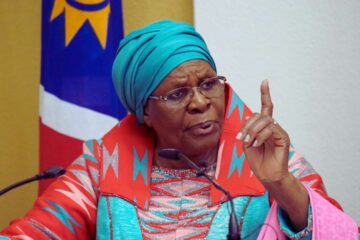Justicia Shipena
United Nations Secretary-General António Guterres has called for African nations to fully benefit from their natural resources, especially those key to the renewable energy transition.
He also renewed his call for reparatory justice for historic injustices.
“We must support Africa’s efforts to expand its clean-energy sector, and ensure that the minerals that are critical to the renewables revolution benefit Africans first and most,” Guterres said in a statement marking Africa Day on Sunday.
He said Africa is becoming a global leader in renewable energy and technology, driven by its young and dynamic population.
Guterres also highlighted the role of the African Continental Free Trade Area in creating jobs and boosting economic integration.
“At a time when barriers are being erected, Africa leads by example,” he said. “The free trade area promises to usher in a new era of economic integration, opening the door to jobs, growth and prosperity.”
He warned that the continent still suffers from the effects of slavery, colonialism, apartheid, and systemic racism.
“The legacies of slavery, colonialism, apartheid, and systemic racism still cast long shadows, and entrenched inequalities affect Africans and people of African descent to this day,” he said.
Namibia joined other African nations to mark the day under the theme, “Justice for Africans and People of African Descent through Reparations.”
Speaking in Okaku constituency in Oshana, President Netumbo Nandi-Ndaitwah said Namibia continues its talks with Germany on reparations for the 1904 to 1908 genocide.
“These negotiations are ongoing and we aim to achieve a comprehensive resolution that adequately addresses Namibia’s rightful claim for reparations and meets the needs of the affected communities,” she said.
She urged African countries to focus on Agenda 2063 and take full advantage of the African Continental Free Trade Area.
“Today is not only about justice for Africans and reparations. May 25 also serves as a day for us, as Africans, to reflect on our priorities and, most importantly, to rededicate our efforts towards achieving Africa’s ambitions for socio-economic advancement,” she said.
Also on Sunday, Vice President Lucia Witbooi addressed a commemoration event at Parliament Gardens in Windhoek.
She said this year’s theme highlights the need for inclusive dialogue and cooperation to advance restorative justice.
She stressed the importance of recognising the contributions of Africans and people of African descent in global development.
Witbooi said Africa must consider the realities of global trade, information sharing, and the movement of people, goods, and ideas.
“We are aware of the external hurdles to continental integration, such as protectionism and the application of tariffs on African countries, which may hamper the smooth and seamless flow of goods and services within the continent, and reduce trade with other countries globally,” she said.
“Therefore, we shall endeavour to continue promoting our own ways of getting things done, and achieve our objectives, among others, the promotion of unity and solidarity among nations, promotion of peace and security, defence of our sovereignty and the acceleration of the Continent’s political and socio-economic integration.”
She said Africa is ready to partner with countries and non-state actors who support its development goals.
She added that in all international engagements, Africa must set the agenda and push its own priorities to ensure its people benefit.
Witbooi said Africa must also deal with conflicts on the continent.
“It is our duty to contribute to the settlement of these conflicts and disputes through peaceful means. Africa is setting standards. Africa is becoming the pathfinder and trendsetter for social justice and equality,” she said.
President of the World Federation of Democratic Youth, Luís Hidalgo Cano, said African youth face high levels of unemployment, poverty, displacement, and marginalisation.
“While we are the majority on this continent, we continue to face disproportionate levels of unemployment, poverty, displacement, and marginalisation,” Cano said.
Cano urged African leaders to turn the ideals of Pan-Africanism into action and include youth in the continent’s development.
“We salute the youth of Namibia and Africa for their relentless activism in defending democratic rights, resisting neo-colonialism, and advancing decolonised education and healthcare. Let us never forget that the struggle for liberation did not end with the lowering of colonial flags.”
Cano called for a youth-led Pan-African movement based on solidarity and anti-imperialist values.
He also called for greater investment in public education, healthcare, and green jobs.
The youth group also called for the protection of youth defenders, journalists, and activists, and for African unity in the pursuit of freedom.
Africa Day, formerly known as African Freedom Day and African Liberation Day, marks the founding of the Organisation of African Unity on 25 May 1963. This year marked the 62nd anniversary of its creation.




